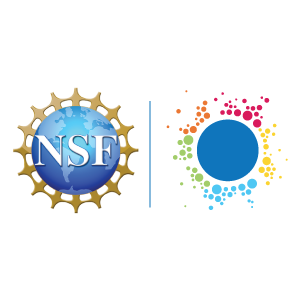From Me to We: Building the NSF INCLUDES National Network
Contributed by Sarah Lee and Vemitra White, Mississippi State University
Welcome to the blog series From Me to We: Building the NSF INCLUDES National Network! Over the next several weeks, we will feature the work of different members of the NSF INCLUDES National Network. This post highlights Sarah Lee and Vemitra White and their work with the Mississippi Alliance for Women in Computing.
Please tell us about your work and the broadening participation challenge it addresses.
The NSF INCLUDES Mississippi Alliance for Women in Computing (MSAWC, #1649312) collectively works to scale existing programs and develop new ones across the state to successfully engage young women, and particularly young women of color, in computing education and career pathways. MSAWC also seeks to (1) improve retention rates of women in undergraduate computing majors and (2) help women transition to the computing workforce.

As MSAWC has evolved and new partners have joined the collective alliance work, activities designed to provide equitable on-ramps to computing pathways for all persons, particularly those who are underserved in Mississippi and underrepresented on computing pathways, are key deliverables from this work. Two notable outcomes are the development of a transdisciplinary CS professional development program for K-12 teachers, Attract-Inspire-Mentor (AIM) and, the Mississippi Coding Academies.
Through AIM, we have trained 150 elementary and secondary teachers from across the state as of September 2019. A course for pre-service teachers, developed jointly by faculty in the engineering and education colleges at Mississippi State University (MSU) and based on AIM, has also been offered twice as part of MSU teacher training courses, at both the graduate and undergraduate levels. The Mississippi Coding Academies (MCA) is an intensive, 11-month non-profit program that teaches “full-stack” computing. It was established by MSAWC partners at InnovateMS, a non-profit that supports economic development initiatives in Mississippi. Students enroll at no cost thanks to a public-private partnership among state government, corporate foundations, MSU, and industry representatives. Across the first 3 cohorts, 56% of MCA students are female and 86% are African American. Over 61% of those completing the program enter technical jobs with an average starting salary of $40,000, an estimated average increase of $26,000 over their incomes before entering the program.
MSAWC also supports Bulldog Bytes. Established at MSU in 2013 with funding from the National Center for Women and Information Technology, this program provides co-curricular computer science and cybersecurity activities for K-12 students. Through partnerships with community colleges, other four-year colleges and universities, and non-profit institutions, the Bulldog Bytes curriculum has expanded to eight sites throughout the state with a focus on engaging elementary girls with computing. With a generous donation from an MSU graduate, an advanced residential camp for Bulldog Bytes alumni, Marchant’s Cyber Leaders, was also launched in 2019. Bulldog Bytes expanded to include teacher professional development in 2015, thanks to funding from the National Security Agency’s GenCyber program, and also provides technology training for senior citizens.
We’re a good team because we bring both industry experience (Lee spent 19 years in FedEx’s IT division) and teaching and mentoring experience (White previously taught high school, trained other teachers, and held a leadership role in a Summer Bridge program to support minority freshman) to co-lead MSAWC, and we work in collaborating offices at Mississippi State. I (Lee) am now Assistant Department Head of the Department of Computer Science & Engineering and associate clinical professor, Program Leader for the MS Affiliate of NCWIT’s Aspirations in Computing program, Executive Director of the MCA Golden Triangle campus (located 30 minutes from Columbus, MS), on the state Board of Directors for MCA, and Executive Director of Bulldog Bytes.

I (White) am Director of the Bagley College of Engineering K12 Outreach Office at MSU, providing opportunities to engage and expose a diverse population of youth to engineering throughout the state. She is co-director of Bulldog Bytes, providing leadership to teacher professional development, and is a former secondary education teacher in Mississippi public schools.
Have you found any resources or made any new connections in the NSF INCLUDES Network that have helped you advance your work?
A connection that has been very helpful is Cindy Ziker with SRI International. We formed and grew a professional relationship with her at NSF INCLUDES Convenings. Cindy’s expertise has been invaluable in helping us understand and facilitate a collective alliance.
What other opportunities for collaboration do you see in the INCLUDES Network?
We’re interested in connecting with anyone who shares our commitment to increasing the participation of girls and young women on computing pathways, works with African American students and/or rural students, offers professional and workforce development, works with public-private partnerships, or works with statewide programs.
As examples, both the Attract-Inspire-Mentor transdisciplinary teacher professional development program and the Mississippi Coding Academies are models that can be scaled beyond Mississippi. We believe that these two programs could further the mission engaging under-served persons on computing pathways, particularly those in rural communities, in other states.
***
Thank you, Sarah and Vemitra! We encourage Network members working in intersecting areas to contact them using the Network’s Member Directory!
We are excited to feature other perspectives throughout this series. Contact the Coordination Hub at nsfincludeshub@sri.com if you are interested in contributing to this blog series.

